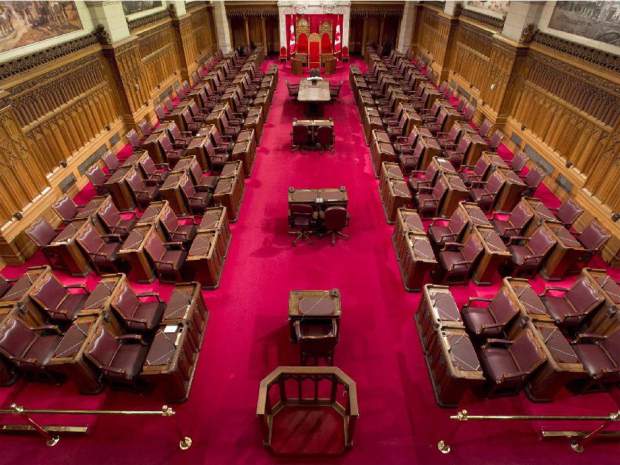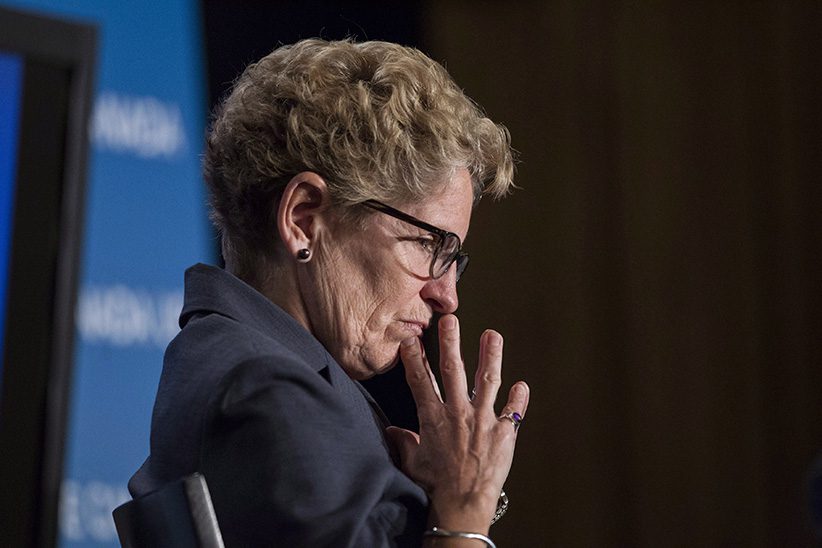There are roughly six sitting weeks left for the House of Commons, during which the government still has some nineteen bills to pass if they're looking to clear the decks in advance of a probable autumn prorogation. The Senate currently has some eight other government bills on its plate right now, plus two more that they have sent back to the Commons with amendments. There is a time crunch coming, and as the past two years have shown, the current leadership in the Upper Chamber is going to have a hell of a time getting things through the process.
Not to put too fine of a point on it, but some of those bills coming from the Commons are pretty big omnibus bills, thinking in particular about the national security bill, the new environmental assessment legislation, the budget implementation bill, and the criminal justice reform bill, while some other coming bills, such as the fisheries bill and the government's new gun control legislation, will be pretty contentious. And this as the Senate is completing its deliberations of the government's cannabis legalization bill, and the impaired driving bill that some senators contend is unconstitutional. There is a lot of work in the weeks ahead.
The problem? The person charged with getting these bills through the Senate has been reluctant to do his job and take the measures that it would require to start effectively managing the Order Paper. That person, as I'm sure you can guess, is the Government Leader in the Senate err, "government representative," Senator Peter Harder, who has steadfastly refused to negotiate timelines for bills with the other caucuses, believing that the kind of horse-trading that it entails is "partisan." And add to that, the Independent Senators Group had little control over how its members deal with legislation either, and they have been free to take adjournments on bills, which makes creating timetables a difficult task indeed.
Additionally, Harder has in the past made some very strange calls when it comes to not extending the sittings of the Senate in order to get bills passed. Before the Christmas break this year, there was an expectation that the Senate would sit an extra week, perhaps two, longer than the Commons in order to push through bills, thinking in particular of the government's omnibus transportation bill, and to get a start on the cannabis bill. Instead, Harder opted to rise right after the Commons did, and only after the Senate returned in late January did he even attempt to deal with coming up with a timetable for the Cannabis bill (which employed an ad hoc scheduling motion that he and some of the Independents have held up as a model for how they would like to see other bills progress). And that transportation bill? It was only this month sent back to the Commons with amendments, when it could have used much more concentrated study back in December and returned to the Commons months ago, possibly helping to head off the rail grain crisis that the prairies experienced.
This problem with managing the Senate's agenda is manifesting itself in other ways, such at how Harder is managing committee sittings throughout the week. Normally, committees don't sit while the Senate Chamber sits, so as to ensure the maximum number of Senators can be in the Chamber to participate in debates. This is in contrast to the House of Commons, which tends to operate at barely quorum throughout the day with the exception of Question Period or votes, while the committees meet throughout that time. As the Senate normally would operate, those committees would only sit while the Chamber does in cases where there were witnesses who could not wait, whether it's someone with a flight to catch or a minister who is otherwise difficult to schedule.
Under Harder's leadership, we have been seeing more cases where motions are being moved to have committees start sitting at 5 PM, even though the Chamber is usually still sitting. While you might think this is an attempt to be more efficient, what it does is slow down opportunities for those who want to debate bills in the Chamber, and it's also extremely taxing on the Senate's resources, given that they have a finite number of interpreters and stenographers to cover both the Chamber and the committees. There have been complaints that he doesn't realize the problems he's creating for the system as a whole, which isn't surprising given that he still doesn't know how the Senate operates, two years later, nor does he have staff who do, given that any staffers who are seasoned enough in these matters have been passed over as being partisans. And thus, the problems compound.
As we start approaching the crush of legislation for the Senate to pass, with Monday evening and Friday sittings in the Chamber coming sooner than later, I'm fully expecting Harder to start insisting on both swift passage of bills with few if any amendments, because the closer they get to the Commons rising for the summer, the more we'll hear about just how much it'll cost taxpayers to recall the MPs to debate and pass amendments. We saw it before, and we'll see it again. This, of course, while insisting that the Senate isn't a rubber stamp. We can also expect Harder to aggressively push his notion that the Salisbury Convention exists in the Canadian Senate (note: it doesn't), as a way of trying to push Senators into not voting against government bills. But as the crunch also starts to get real, I also expect that we'll see Harder start pushing his plan to institute a business committee yet again, as his way of offloading the responsibility of coordinating the Senate's Order Paper to a select clique that keeps him from doing any of the negotiation that he is supposed to be doing to ensure that the government's agenda is pushed through. He'll lament how many bills the Order Paper has accumulated, and how difficult it is for them to manage in such a haphazard way, in the hopes that enough of the newer Independent senators will think that maybe this is the way to go, after they managed to come up with a timetable on the cannabis bill, and that they'll buy into the concept. And it's the danger of having senators who don't have enough experience to know that this isn't how things should be operating, and they'll agree to rule changes that will compound problems rather than solve them. That's why senators should be on guard, because it's going to be a very crazy season ahead, and they'll be vulnerable to his attempted manipulation if they're not careful.








